
Kenrick Cato, PhD, RN, CPHIMS, FAAN, FACMI
Kenrick Cato, PhD, RN, CPHIMS, FAAN, FACMI is a Professor of Informatics at the University of Pennsylvania School of Nursing and a Nurse Scientist for Pediatric Data and Analytics at […]

Blanca E. Himes, PhD, ATSF, FAMIA
Dr. Himes’ work focuses on using biomedical informatics approaches to study asthma and other complex traits. Dr. Himes began asthma genetics and pharmacogenetics research by participating in genome-wide association studies […]

M. Kit Delgado, MD, MS, Elected to the American Society for Clinical Investigation
Muscio Kit Delgado, MD, MS, Associate Professor of Emergency Medicine and Epidemiology, has been elected to the ASCI. His research blends behavioral and data science with insights gleaned from practicing emergency medicine in an urban trauma center to help promote smarter health choices and policy.

The University of Pennsylvania Prevention Research Center Awarded a $6.5 Million CDC Grant
The University of Pennsylvania Prevention Research Center has received a $6.5 million CDC grant to advance community-based prevention research, focusing on improving shared decision-making for older cancer patients. This five-year project will study interventions tailored to patients’ needs, enhancing outcomes in Philadelphia and beyond.

Penn and CHOP Researchers Secure $50M NIH Grant to Study Environmental Impact on Pregnancy and Children’s Health
Penn and CHOP researchers receive a $50 million NIH grant to study how environmental exposures impact pregnancy and child health, aiming to reduce health disparities and improve maternal-child outcomes.

Community Spotlight: Dr. Stephens Shields
Alisa Stephens Shields, PhD serves as an Associate Professor in the Biostatistics division of the Department of Biostatistics, Epidemiology and Informatics, and is recognized for her collaboration and impactful leadership in the realms of health, statistical education, and inclusion in the field.

Community Spotlight: Kacie Bogar, MS
For almost three years, Kacie Bogar, MS has served as a Research Project Manager for the Center for Real-World Effectiveness and Safety of Therapeutics (CREST) and the Epidemiology division in the Department of Biostatistics, Epidemiology and Informatics.

Dr. Stephens Shields Honored with 2024 Myrto Lefkopoulou Distinguished Lectureship
Alisa Stephens Shields, PhD, Associate Professor of Biostatistics, was selected by the Harvard T.H. Chan School of Public Health to receive the 2024 Myrto Lefkopoulou Distinguished Lectureship.

Jiayin Zheng, PhD
Dr. Zheng is an assistant professor of Biostatistics. His research focuses on the development of novel statistical methods to address important scientific problems, and the application of sound statistical approaches […]

Sunni Mumford, PhD
Dr. Mumford is renowned for her research on modifiable dietary and lifestyle factors affecting reproductive health, which has informed guidelines for women, men, and couples. Her work uses couples-based approaches […]

Elizabeth Nesoff, PhD, MPH
Dr. Nesoff is a social epidemiologist focused on the intersection of substance use, the neighborhood environment, injury prevention, and health disparities. Her current research uses spatial analysis methods to investigate […]

Sarah Jeanne Schrauben, MD, MSCE
Dr. Schrauben’s research focuses on the impact of health behaviors and modifiable risk factors in the development and management of chronic kidney disease (CKD) and its complications, and addresses implementation […]

Elizabeth Lowenthal, MD, MSCE
Dr. Lowenthal is a pediatric HIV clinical specialist and epidemiologist whose research work is primarily focused on pediatric global health. Much of her research relates to the care and treatment […]

Anne Marie McCarthy, PhD
The goal of Dr. McCarthy’s research is to reduce the burden of cancer through improved prevention and screening strategies, particularly for racial/ethnic minorities. Her work seeks to integrate genomics into […]

Michael Z. Levy, PhD
Dr. Levy works at the interface of epidemiology, ecology, and statistics to understand and control vector-borne and other infectious diseases. For over two decades he has focused his research on […]

Jin Jin, PhD
Dr. Jin’s research focuses on developing statistical methods and computational tools to address cutting-edge problems in public health and medicine by integrating large-scale, multi-source datasets. Her research areas include health […]

Meghan B. Lane-Fall, MD, MSHP, FCCM
Meghan Lane-Fall, MD, MSHP, FCCM is an implementation scientist and practicing anesthesiologist and intensive care physician. She is the Executive Director of the Penn Implementation Science Center (PISCE), Senior Fellow […]

Karen Glanz, PhD, MPH
Karen Glanz, PhD, MPH, is George A. Weiss University Professor, Professor in the Perelman School of Medicine (PSOM) and the School of Nursing, and Director of the UPenn Prevention Research […]

James Guevara, MD, MPH
James Guevara, MD, MPH, is a Professor of Pediatrics & Epidemiology at the Perelman School of Medicine at the University of Pennsylvania and an attending physician at the Children’s Hospital […]

Scott D. Halpern, MD, PhD, M.Bioethics
Scott D. Halpern, M.D., Ph.D. is the John M. Eisenberg Professor of Medicine, Epidemiology, and Medical Ethics and Health Policy at the University of Pennsylvania, and a practicing critical care […]

Jinbo Chen, PhD
Dr. Jinbo Chen is Professor of Biostatistics in the Department of Biostatistics, Epidemiology & Informatics at the University of Pennsylvania Perelman School of Medicine. Her research focuses on statistical methods […]

Angela Aherrera, DrPH, MPH
Dr. Angela Aherrera is an environmental epidemiologist in the Department of Biostatistics, Epidemiology and Informatics at the University of Pennsylvania Perelman School of Medicine. Her research largely focuses on environmental […]

Sandra Amaral, MD, MHS
Dr. Amaral’s research focuses on improving equitable access to care and long-term health outcomes for children, adolescents, and young adults with chronic kidney disease and transplantation. She currently leads three […]

Scarlett Bellamy, ScD, SPH
Scarlett Bellamy is Chair and Professor of Biostatistics at Boston University. Prior to this, she was a professor in the Department of Epidemiology and Biostatistics and the Associate Dean for […]

Ellen Caniglia, ScD
Dr. Caniglia is a perinatal and HIV epidemiologist who works to improve health outcomes among pregnant people and their children, and among people with HIV. Her work utilizes methods for […]

Ricardo Castillo, PhD, DVM, MSPH
Dr. Castillo’s work focuses on the development and application of innovative epidemiological methods to understand, control, and eliminate infectious diseases. He conducts research on zoonotic diseases in Latin America where […]

Dr. Kit Delgado Featured in Undark Magazine for Advancing Health Care with Nudge Theory
In a recent Undark feature, Dr. M. Kit Delgado, Associate Professor of Emergency Medicine, discusses how behavioral science and nudge theory are transforming health care decision-making.

Glanz receives top honors in medicine and research
Karen Glanz, PhD, MPH, received two distinguished honors in the month of November. Dr. Glanz is the George A. Weiss University Professor, Professor of Epidemiology in the Perelman School […]
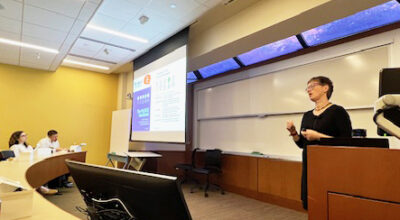
Applying Behavioral Economics to Research and Policy
Behavioral Economics: Policy Impact and Future Directions – Highlights from the NASEM Consensus Study Report The hybrid event was co-sponsored with the Population Science Research Programs at the Abramson Cancer […]

Penn Medicine Study Shows High Pregnancy Weight Gain Tied to Higher Risk of Death in the Following Decades
Excess weight gain during pregnancy increases long-term death risk from heart disease and diabetes, a Penn Medicine study finds, highlighting the need for better prenatal weight management and preventive care.
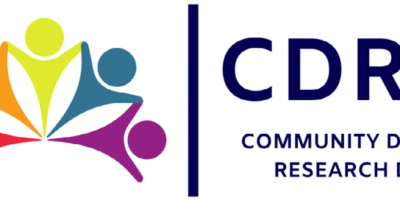
Pilot Grant Awards for 2023-2024
The Community Engagement and Research Core (CEAR) at the University of Pennsylvania has awarded pilot grant funding for 2023-2024. Two projects were selected to receive funding through the CEAR Pilot […]

New Built Environment Assessment Training
The Built Environment Assessment Training (BEAT) Institute grew out of the recognition that environmental and policy changes are some of the most promising strategies for controlling obesity and improving diet […]

Farrar and Schisterman Named to National Academies of Sciences, Engineering, and Medicine Ad-hoc Committees
Earlier this year, John Farrar, MD, PhD and Enrique Schisterman, PhD were named to National Academies of Sciences, Engineering, and Medicine ad-hoc committees. Farrar serves on “Evaluating the Effects of Opioids and Benzodiazepines on […]

New NCI U01 on developing responsible AI tools to address data bias and disparities in cancer research
Dr. Qi Long received a new U01 grant from NCI, entitled “Robust Privacy Preserving Distributed Analysis Platform for Cancer Research: Addressing Data Bias and Disparities.” This grant enables Dr. Long’s group […]
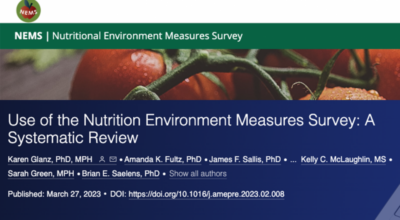
A comprehensive review covers 15 years of nutrition environment measurement tools
NEMS measures have played an important role in the growth of research on food environments and have helped researchers to explore the relationships among healthy food availability, demographic variables, eating […]

Healthy Eating study chosen as one of Penn Med’s top health equity initiatives
The poster presenting the results from the healthy eating study conducted by Karen Glanz, PhD, MPH; Amanda Fultz, PhD, RDN; Yolande Goncalves, MPH; Pui Kwong, MPH; and Christina Roberto, PhD., […]

Pregnancy Complications Tied to Higher Risk of Death As Long As 50 Years Later
Pregnancy complications like preterm birth and high blood pressure increase long-term death risk, a Penn Medicine study finds, highlighting the need for preventive care decades after childbirth.
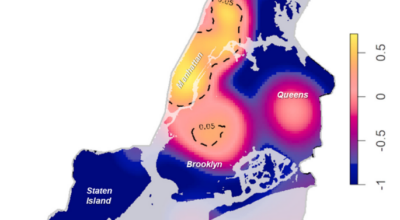
Examining Places Where People Experiencing Homelessness Overdose
Elizabeth Nesoff, PhD, MPH discusses her recently published study in the Leonard Davis Institute of Health Economics (LDI) blog investigating neighborhood features that were correlated with fatal opioid overdoses among the […]
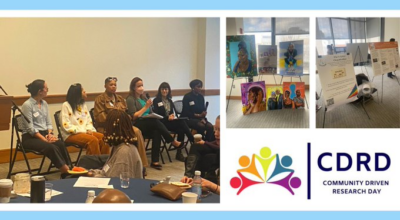
Details for Community Driven Research Day 2023
via CHOP Center for Violence Prevention Through CDRD, Community-Based Organizations (CBOs) and community groups interested in developing partnerships to conduct research participate in an interactive rapid presentation that highlights the […]

How outdated rules restrict gay men from donating blood
Dr. Kevin Johnson, MD, MS, FAAP, FAMIA, FACMI shares his experience trying to donate blood as a gay man and discusses how the Unites States has more restrictive rules than […]

CDRD Pilot Grant Funding for 2022-2023
The Community Engagement and Research Core (CEAR) and Penn Center for Public Health (formally Center for Public Health Initiatives, CPHI) at the University of Pennsylvania have awarded pilot grant funding […]

Preventing skin cancer: after 24 years, Pool Cool still reaches swimmers across the country
The Pool Cool program was designed to teach sun safety to children during swim lessons and to help swimming pools to become more sun-safe environments. The goals are to help […]
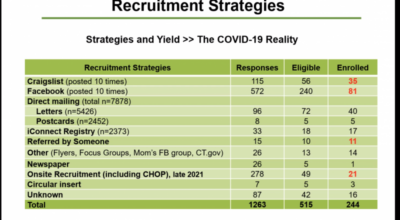
Healthy Savings Study presentation
On February 22, 2022, Dr. Glanz presented to the Center for Childhood Cancer Research (CCCR) at the Children’s Hospital of Philadelphia. The topic was the “Impact of Real-Time Incentives on […]

Not Really a “˜White Man’s Disease’
A diagnosis of ankylosing spondylitis finally explained Christi Taylor-Gentry’s throbbing joint pain. But as recently as 2006, when Alexis Ogdie-Beatty, MD, MSCE, became a doctor, she was taught that the […]

The 12th Annual CDRD will be held virtually on Thursday, January 27
Community-Driven Research Day (CDRD) encourages collaborations between researchers and community-based organizations (CBOs) and community groups who have research questions that they are interested in answering, specifically in ways that address social […]

New at NeurIPS 2021: Assessing Fairness in the Presence of Missing Data
Our new paper “Assessing Fairness in the Presence of Missing Data” has been accepted for publication at NeurIPS 2021, a leading machine learning /artificial intelligence conference. Learn More

New in PNAS: Minority collapse in deep learning, unfairness for minority groups in high-stakes decisionmaking
Our recent PNAS paper introduced the Layer-Peeled Model in deep learning that can: 1) predict a hitherto unknown phenomenon termed “Minority Collapse” in imbalanced training; and 2) explain neural collapse […]

Making progress in the area of food insecurity & nutrition environments
On Tuesday, September 21, 2021, UPenn PRC director, Karen Glanz, PhD, MPH, co-chaired an NIH (trans-NIH) workshop called Food Insecurity, Neighborhood Food Environment, and Nutrition Health Disparities: State of the Science. It […]
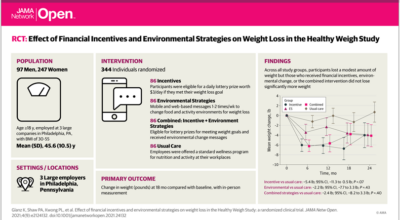
Achieving a Healthy Weight: More Intensive and Tailored Individual Strategies May Be Best
Given rising rates of obesity in the U.S. and the many associated health problems, researchers have tested various strategies for weight loss. Both financial incentives and environmental changes — such […]
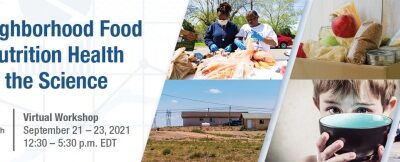
Assessing and Addressing Nutrition and Health in our Communities
Karen Glanz, PhD, MPH was among the organizers that participated in this important event. The goal was to review the state of the science, identify research gaps and opportunities related to […]

Eviction Risk High, COVID-19 Vaccination Rates Low
Michael Z. Levy, PhD, warned that the looming return of evictions comes at a time when COVID-19 vaccination rates in the U.S. have plateaued and while the highly transmissible Delta […]
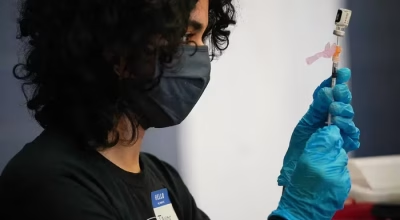
Despite Local Lags, a Positive Big Picture
As Pennsylvania nears a Covid-19 vaccination benchmark, Jeffrey Morris, PhD, says county-level variations won’t be a big problem: While we may see some local brush fires, we won’t have a […]

Consequences of Overturning the Eviction Ban
Michael Z. Levy, PhD, commented on the potential public health consequences of a federal judge’s ruling (later staid, temporarily, by the US Justice Deptl) to end the CDC’s national eviction […]

Halting Evictions Helped Reduce Spread of COVID-19 in Philadelphia
The CDC’s order prohibiting evictions in fall ” winter 2020 likely prevented thousands of COVID-19 infections per million metropolitan residents, showed a study co-led by Michael Z. Levy, PhD. Dr. […]

Maternity Risks Higher in a Black Neighborhood
A new study found that living in a majority-Black neighborhood in Philadelphia is linked to increased maternal health issues. Mary Regina Boland, MA, MPhil, PhD, commented. Read the coverage on […]

During the Pandemic, Pressures on Women in Science
“That first month was really hard,” commented Alisa Stephens-Shields, PhD, about the COVID-19 lockdown. Her infant daughter’s day care was closed, and her five-year-old was at home, not at school. […]

Equalizing Access to Clinical Trials
Typically underserved groups are underrepresented in therapeutic clinical trials” so the findings may be less applicable for them. Sean Hennessy, PharmD, PhD, describes how experimental treatment has benefited his wife […]

The CDC evidence review to improve school nutrition
School administrators and public health officials are important players in the choices our children make during meals at school. This evidence review of environmental and policy strategies to improve school […]
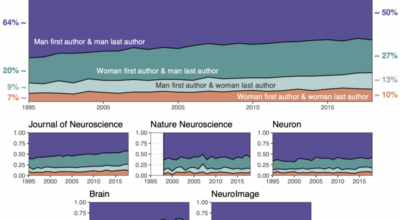
The extent and drivers of gender imbalance in neuroscience reference lists
Like many scientific disciplines, neuroscience has increasingly attempted to confront pervasive gender imbalances within the field. While much of the conversation has centered around publishing and conference participation, recent research […]

Why Are So Many Black Americans Dying of COVID-19?
Across the United States, black Americans are dying from COVID-19 at disproportionately higher rates than their white counterparts. If the data from other large cities hold true in Philadelphia ” […]

2019 Research Day Recap | DBEI COE
Dr. Glanz started off the day with her Featured Faculty Talk, “Food and Nutrition Environments: Is There an Elephant in the Room?”

New paper on instrumental variables estimation
Bounded, efficient and multiply robust estimation of average treatment effects using instrumental variables Wang L, Tchetgen Tchetgen E. Instrumental variables (IVs) are widely used for estimating causal effects in the […]